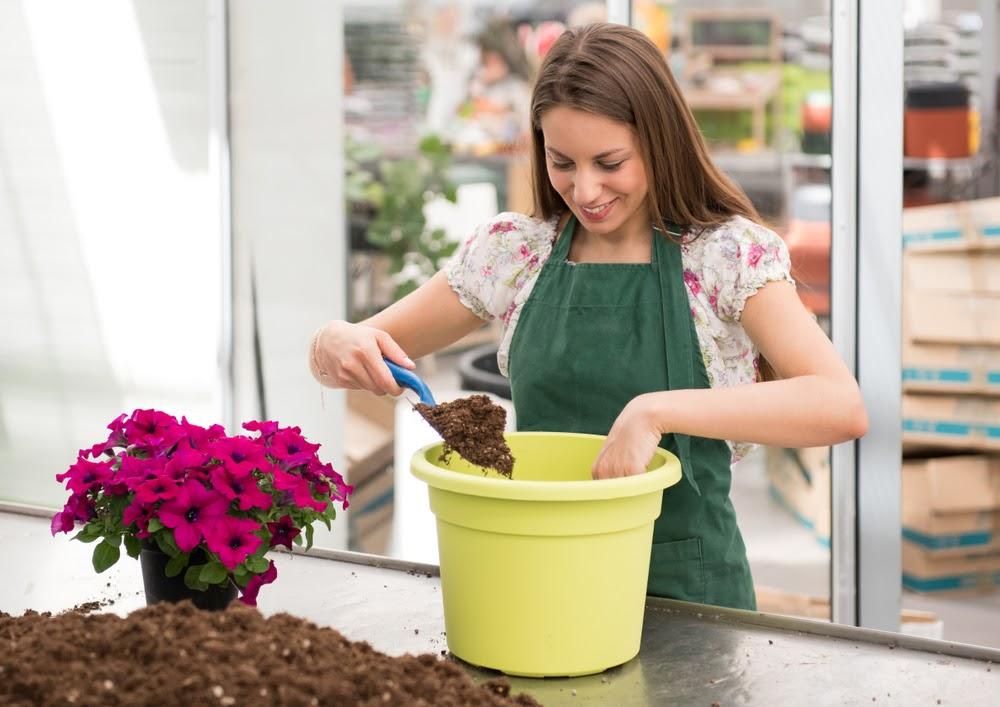
One of the most common questions about using large planters is, “what do I fill the bottom with?.” Potting soil is no cheap affair, and when you have large or commercial planters, the dollars soon add up.
You are watching: What Can I Use to Fill the Bottom of a Large Planter?
You don’t need to fill a large planter with soil (unless you want to and can afford it). There are plenty of other materials you can use that work well and ensure the potted plant or tree continues to grow and thrive.
In this post, we look at the best materials to fill the bottom of a large planter to save you some time, energy, and money.
Things to Consider before Filling the Bottom of Your Large Planter
First, you will need to know the specific requirements of the plant or tree you wish to pot. Depending on the type of tree or plant, it will likely require different amounts of space within the pot or planter. You will then know how much space you need to fill.
Read more : What Gauge Wire Do I Need For Landscape Lighting?
If you only need to fill a small amount of space, you should opt for high-quality potting soil and not regular garden soil. Soil from your garden or elsewhere is likely contaminated with weeds and other contaminants that hinder your plant or tree’s growth.
Potting soil is designed to allow for proper drainage in a planter. Soil from the ground can cause issues with planter drainage, weight, and potential freeze/thaw.
If you have a large amount of space to fill at the bottom of your large planter, find the most suitable filling for your planter’s base from the list below.
6 Alternatives to Soil to Fill the Bottom of a Large Planter
Before we get started on what you should use, a quick note on what not to use. Avoid using packing peanuts made from corn, as they will disintegrate when exposed to water.
1. Recycled Plastics
As we all probably know, plastic pollution is now a serious environmental issue. If you have recycled plastic lying around, such as water or soda bottles, grocery bags, or milk and juice jugs, use them to fill the bottom of your large planter. The plastic is of more use in the base of your tall planter than in a landfill.
2. Packing Materials
You can use packing peanuts as long as they’re not the type that dissolves in water. Styrofoam peanuts do an excellent job. Make sure they’re secured within a bag to keep them stable and in place. It also makes your life easier if you decide to repot the plant.
Read more : Is White Oak Good For Making Durable Outdoor Furniture?
You can use styrofoam blocks also. Again make sure they’re in a bag to keep them stable.
3. Metal Cans
Many of us go through a good number of canned foods each week. Try upcycling cans to fill your large planter by crushing them and layering them to fill the desired area.
4. Plastic Pots
Plastic pots from chilled foods or takeaways can be useful. Just turn them upside down, so the flat bottom is facing upwards. Doing this will create a solid foundation at the bottom of the large planter for your plant or tree to sit.
5. Natural Materials
You may have several natural materials around the house or garden that can be of use. Pine cones, wood chips, leaves, and sticks can all be used but will break down over time—a sustainable choice for seasonal planters who repot regularly.
6. Waste Paper and Cardboard
Put those old newspapers and Amazon delivery boxes to good use and fill the bottom of your large planter with a mix of them crushed down. Again, these materials will break down over time, so they’re best suited for those repotting regularly.
In need of some large pots and planters? Browse our extensive range of high-quality, durable large outdoor planters available in a huge selection of materials, finishes, and colors. Check out our wholesale planter program for some great large planters for less.
Source: https://gardencourte.com
Categories: Outdoor


